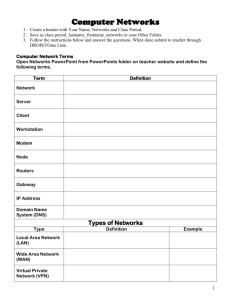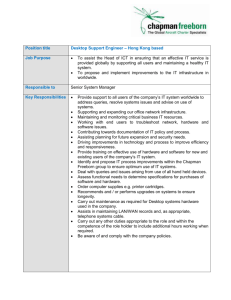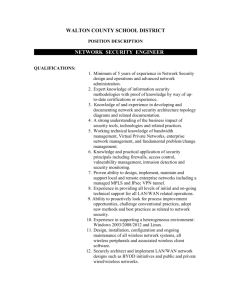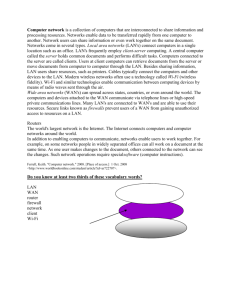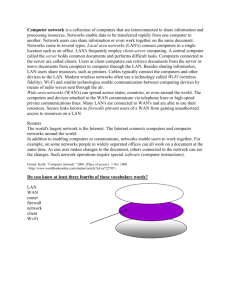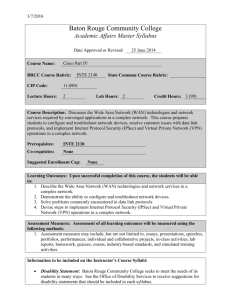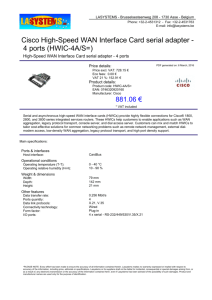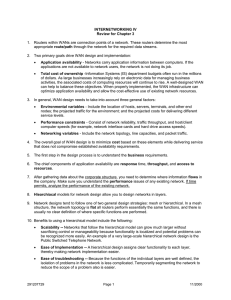Network Support
advertisement
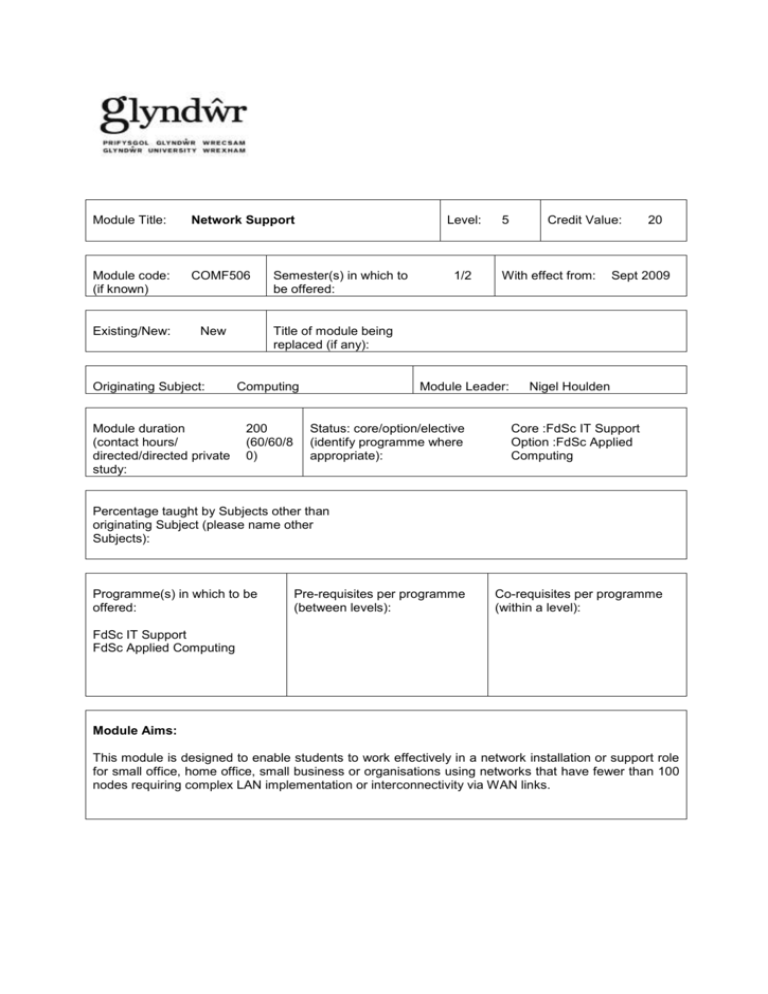
Module Title: Network Support Module code: (if known) COMF506 Existing/New: New Originating Subject: Module duration (contact hours/ directed/directed private study: Level: Semester(s) in which to be offered: 1/2 5 Credit Value: With effect from: 20 Sept 2009 Title of module being replaced (if any): Computing 200 (60/60/8 0) Module Leader: Status: core/option/elective (identify programme where appropriate): Nigel Houlden Core :FdSc IT Support Option :FdSc Applied Computing Percentage taught by Subjects other than originating Subject (please name other Subjects): Programme(s) in which to be offered: Pre-requisites per programme (between levels): Co-requisites per programme (within a level): FdSc IT Support FdSc Applied Computing Module Aims: This module is designed to enable students to work effectively in a network installation or support role for small office, home office, small business or organisations using networks that have fewer than 100 nodes requiring complex LAN implementation or interconnectivity via WAN links. Expected Learning Outcomes At the end of this module, students should be able to: Knowledge and Understanding: 1. 2. 3. 4. 5. 6. Describe scalable IP address schemes. Describe WAN technologies and design techniques. Implement a wireless network. Describe WAN concepts. Implement a WAN. Describe network administration. Transferable/Key Skills and other attributes: Research and investigative skills Oral communication skills Interpersonal skills Self-evaluation Decision making and independent thought Thinking critically Assessment: Evidence for the knowledge and/or skills will be produced using a set of restricted response questions to assess student’s knowledge and understanding. This may be administered as a single Multiple Choice Test, or as several subtests, each covering one or more outcomes. If a student requires to be reassessed, a different selection of questions will be used. The practical component is assessed by having the student use and complete a logbook to record the practical tasks successfully completed. The logbook can be produced by the student in paper or electronic form and will be authenticated by the tutor. If a student requires to be reassessed, a different selection of practical components will be used. Assessment 1 2 Learning Outcomes to be met 1-6 1-6 Type of assessment MCQ Logbook Weighting Duration (if exam) 30% 70% 1 hr Word count or equivalent if appropriate N/A 4,000 Learning and Teaching Strategies: Students will receive instruction during workshops involving intensive practical work, on-line reading material, and mini-lectures. Students are tested at all stages by probing on-line exams and challenging practical case studies Syllabus outline: Scalable IP address schemes. Network and port address translation. Implement advanced addressing. Dynamic Host Configuration Protocol (assigning IP addresses) WAN technologies and design techniques. WAN concepts. WAN technologies. WAN design principles. Wireless and broadband network operation concepts. access networks (xDSL) Wireless LAN Access Points. Bridges, Antennas and Accessories Multi-service provision Network Administration Topographic design Selection of appropriate technology Bibliography (please submit in Harvard referencing format) Essential reading: Irving P, (2005) Computer Networks 2nd Edition, Lexden Publishing Norton, P, Kearns, D, (2001) Complete Guide to Networking , SAMS Other indicative reading: Stallings W, (2008) Data and Computer Communications, 8th Edition, Pearson International
